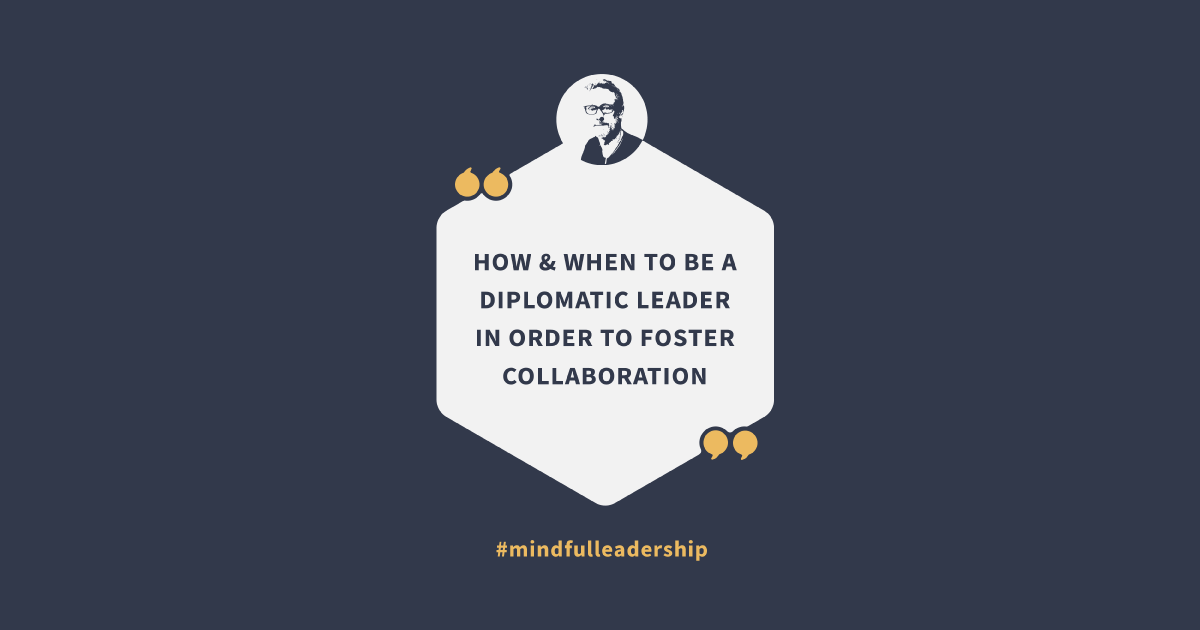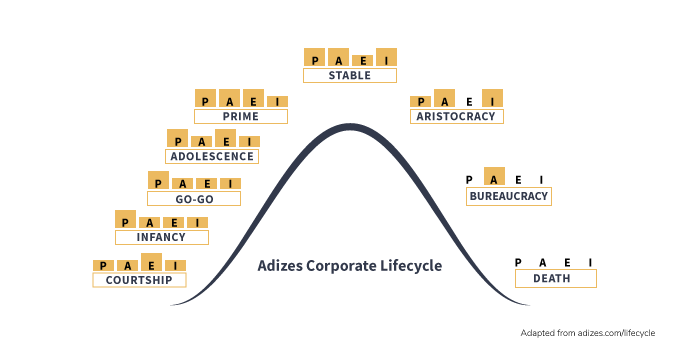How and When to be a Diplomatic Leader in Order to Foster Collaboration

 By Grant Ian Gamble | August 26, 2020
By Grant Ian Gamble | August 26, 2020
Grant Ian Gamble is an international business strategy and growth consultant, best-selling author and speaker. He works in a broad array of industries helping companies build teams, navigate change and drive growth.
The consummate leader needs to be both a diplomat and a truth-teller, and those things don’t always line up perfectly.
It is the role of the leader to guide their company and often, that involves smoothing the waters and sometimes delivering bad news.
The skills of the diplomat are those of sensitivity toward the stakeholders and finding a navigable path when things get bent out of shape. The diplomat needs to balance often disparate needs to find a resolution.
The diplomat is also the integrator who attempts to get everyone playing together in the sandbox and help engender cooperation and collaboration.

As much as dedicated and high performing teams cite diplomacy as a preferred behavior for their leaders, the diplomatic approach comes with some challenges. As I suggested earlier, it can cause the leader to hold back on delivering truth bombs when candor may potentially lead to a better ultimate outcome. These compromises can blur the lines at times.
The other downside of the diplomatic style is that oftentimes, taking a more diplomatic route can increase time to resolution. This is usually the case because the diplomatic leader needs to work with all stakeholders. Taking the time to reach out to, and often revisit, all the players doesn’t usually happen quickly, but can help amplify Affinity.
I personally think the diplomatic style can be incredibly important in organizations seeking integration and collaboration. However, it’s not always the best style in start-ups, early-stage, and fast-moving organizations.

Want to Know Your Leadership Potential? Take this Leadership Appraisal!
The Affinity Principle Leadership Appraisal is a free benchmarking tool for you and your leadership team to gauge your individual and collective propensity to create Affinity within your organization.
The Leadership Appraisal is based on key questions asked of over 6,000 senior executives across the world in the Globe 2020 Report of CEO Leadership Behaviors and Effectiveness. These questions break down into 8 primary leadership dimensions that most influence top management team’s dedication and overall firm performance.
The Adizes Model
Ichak Adizes places great importance on the integrator, or diplomat, and sees them as critical to a company’s drive to prime (optimal performance).
Adizes developed a model of the life-cycle of a business and profiles the different styles of leadership needed at each phase of a company’s evolution.
Adizes argues that there are four basic roles that are needed in all organizations, in varying degrees, at various points in a company’s evolution: Producer (P), Administrator (A), Entrepreneur (E), and Integrator (I).
People don’t fit exactly into one of these, but usually are a mixture of them:
Adizes’ 4 Basic Roles
THE PRODUCER
Organizations exist to produce results. The results being produced may vary depending on the organization, but they all exist in order to satisfy customer needs. The Producer is typically very delivery focused. They work long hours to ‘do it now’ and tend to believe that hard work solves everything.
THE ADMINISTRATOR
While the Producer focuses on what to do, the administrator focuses on how things should be done. The administrator undertakes activities that are directed at getting things organized, planned, scheduled, systematized, and generally under control by capturing the learning curve about how to do things right in processes, procedures, and systems.
THE ENTREPRENEUR
Entrepreneurs embrace change and inspire those around them. They are focused on creating new opportunities or responding to threats. Entrepreneurs are more willing to believe in visions and take significant risks, whilst using story-telling and other techniques to bring others along with them.
THE INTEGRATOR
Integrators are reliable, trustworthy, warm, and caring. The Integrator role focuses on the development of teams who can make the organization efficient over the long term. Integrator Managers often develop persistent cultures of mutual trust and mutual respect.
Source: adizes.com
The model below illustrates the varied emphasis needed from these roles as the company matures and ages.
To me, the diplomat is the Integrator.
As you can see in the model illustrated below, the ‘I’ comes into their own, focusing on cooperation and collaboration of the team as the company matures and the fast-paced chaos of the early stages disappears into the rearview mirror.
I have served as the Integrator in many roles, helping at times manage interpersonal, interdepartmental, supplier and customer relationships. All of these roles require diplomatic skills.
An integrator can be thought of as a Chief of Staff. They aim to foster improved communications up and down the organization and create Affinity. Much like a diplomat they need to be aware and responsive to the needs, views, motivations and conflicts at play.
The integrator considers all the stakeholders and tries to align interests and concerns.

The integrator aims for collaboration, cohesiveness and unification.
It is also the job of the integrator to help build teams, and drive toward the shared vision and intrinsic purpose.
And the integrator is uniquely aware of the interpersonal and group interactions and dynamics and works to build the organic functionality of the organization.

Resources to Help You Through Uncertain Times:
-
Strategies to Follow as You Re-Open or Re-Imagine Your Business in the New COVID-19 Reality
-
How to Transcend Troubling Times
-
4 Tips to Proactively Address the Stress of COVID-19
-
Change Management During Uncertain Times
-
26 Non-Negotiables, Opportunities & Tips for Surviving and Thriving During and After the COVID-19 Pandemic
-
30 Business Sectors That Are Booming During the COVID-19 Pandemic
-
Overcoming F.E.A.R. During COVID Uncertainty
-
Virtual Training During and Beyond COVID-19
-
Virtual Stand-Up: A Simple Communication Tool for You and Your Team During COVID
-
13 Tips to Help Your Business Survive the Coronavirus Pandemic
Fill out the form below and receive a PDF download of "6 Key Strategies to Engage Untapped Fitness and Wellness Market Segments"
Let's Connect!
CUSTOMER EXPERIENCE, TEAM ENGAGEMENT & WORKPLACE WELL-BEING: AFFINITY OS™ | WELLNESS INTEGRATION | MINDFUL LEADERSHIP: "THE AFFINITY PRINCIPLE"
0475 866 592

The Affinity Principle™ by Grant Gamble presents a formula for business success through a people-centric, mindful leadership approach.
PEOPLE FIRST, ALWAYS.

